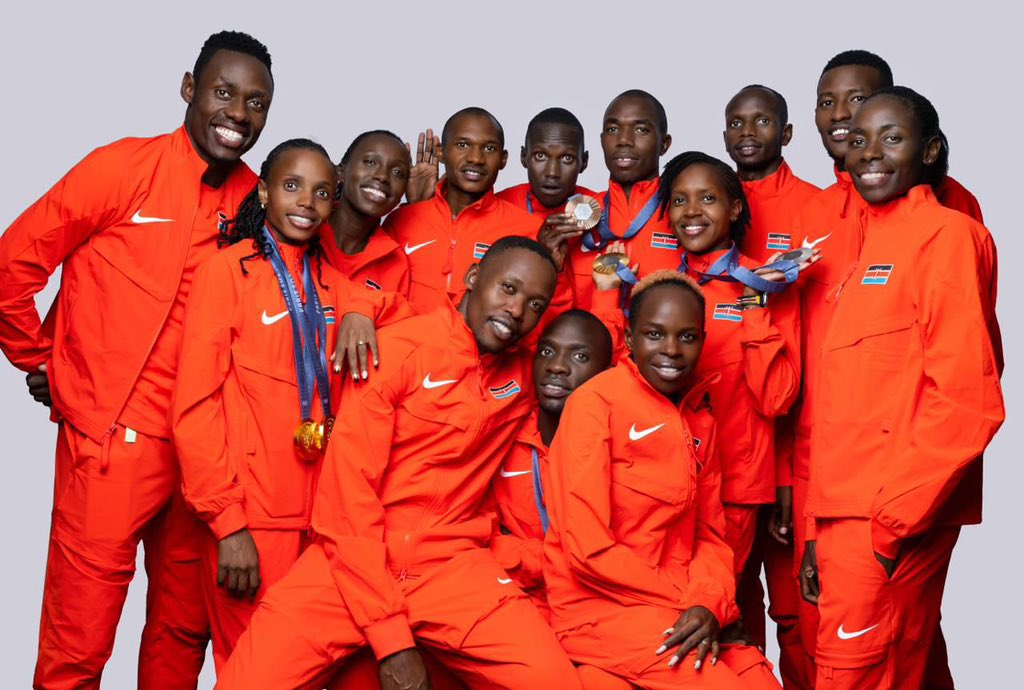The International Olympic Committee (IOC) is currently facing intense scrutiny and criticism for its alleged exploitation of athletes. Reports of the committee’s lavish spending practices, contrasted with the minimal financial support provided to Olympians, have sparked widespread outrage. This controversy has been brought to the forefront by a recent article in South Africa’s Daily Maverick, which highlights the significant revenue generated by the IOC and the meager benefits passed on to the athletes who make the Olympic Games possible.
The IOC’s Massive Revenue and Athlete Compensation Disparity
According to reports, the IOC earned an astonishing $7.8 billion during the 2017-2021 Olympic cycle, with $4.2 billion of that revenue coming from the Tokyo 2021 Olympics alone. These figures underscore the vast financial power wielded by the IOC, driven primarily by lucrative broadcast rights and sponsorship deals. Despite these immense earnings, the direct financial support athletes receive from the body remains shockingly low.
The Olympic Scholarship program, which is the primary source of financial assistance for athletes from the IOC, accounts for a mere 0.6% of the committee’s total revenue. This minuscule allocation has drawn sharp criticism, especially when compared to other major sports leagues. In leagues such as the NBA, NFL, and Major League Baseball, players receive between 45% and 50% of the total revenue, highlighting a significant disparity in how athletes are compensated.
Lavish Spending and Athlete Exploitation
The criticism of the IOC is not limited to the disparity in revenue sharing. The committee’s extravagant spending on luxurious accommodations, travel, and per diem rates for its members during the Olympics has only intensified the backlash. For instance, during the Paris Olympics, IOC members stayed at the Hotel du Collectionneur, a luxury hotel where the IOC reportedly paid $24 million to rent the entire facility for the duration of the Games. In addition to first-class travel, IOC members received per diem payments of up to $900 per day for attending the Olympics and official events.
These spending practices have been met with outrage, particularly in light of the financial struggles faced by many Olympic athletes. Research conducted by the Australian Sports Foundation in 2023 revealed that 46% of Australia’s elite athletes over the age of 18 were earning less than A$23,000 per year, placing them below the poverty line. The stark contrast between the financial hardships of athletes and the luxury enjoyed by IOC members has fueled accusations of exploitation.
Moreover, the the committee has been criticized for requiring athletes to sign away their name, image, and likeness (NIL) rights to the committee without any compensation. This practice has been condemned as a further example of the IOC’s exploitation of athletes, as it strips them of potential earnings from endorsements and other revenue-generating opportunities related to their Olympic participation.
The Ineffectiveness of the IOC Athletes Commission
One of the central points of contention in the ongoing debate is the effectiveness of the IOC Athletes Commission, which is supposed to represent the interests of athletes within the organization. Critics argue that the commission, composed of former Olympians, lacks the independence and authority necessary to effectively advocate for athletes’ rights.
The Athletes Commission is an integral part of the IOC, which many see as a conflict of interest. For athlete representation to be truly effective, it needs to be independent of the governing body and recognized as a legitimate stakeholder with the ability to negotiate on behalf of the athletes. Without such independence, the commission’s ability to address issues such as revenue sharing, NIL rights, and overall athlete welfare remains severely limited.
Growing Calls for Reform and Greater Transparency
As the criticism of the IOC continues to mount, there is a growing call for reform within the organization. Many advocates are pushing for a more equitable distribution of Olympic revenue, arguing that athletes should receive a fairer share of the earnings generated by their performances. Additionally, there is a demand for greater transparency in how the IOC allocates its funds, particularly regarding the expenses related to its members and the actual financial support provided to athletes.
The issue of athlete exploitation is not new, but the recent revelations have brought the debate to the forefront of public consciousness. The committee’s reputation is increasingly being questioned, with more voices calling for a complete overhaul of how the organization operates. Critics argue that the IOC must prioritize the welfare of the athletes who are the heart of the Olympic Games, rather than focusing on the accumulation and distribution of wealth among its members.
The Future of the IOC and Athlete Representation
The ongoing controversy surrounding the athletics body and its treatment of athletes raises significant questions about the future of the organization. As more athletes, advocacy groups, and members of the public demand change, the IOC will need to address these concerns or risk further damaging its reputation. The need for independent athlete representation, a fairer revenue-sharing model, and greater accountability in the IOC’s financial dealings are all crucial issues that must be addressed to ensure the long-term sustainability and integrity of the Olympic movement.
In conclusion, the criticism of the IOC for its alleged exploitation of athletes and financial disparities is a serious issue that cannot be ignored. The growing calls for reform and transparency highlight the need for a fundamental shift in how the organization operates. As the debate continues, it remains to be seen whether the IOC will take meaningful steps to address these concerns and restore confidence in its commitment to the welfare of Olympic athletes


